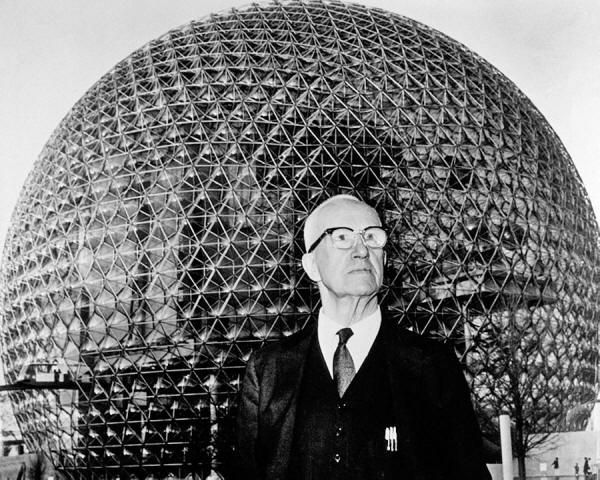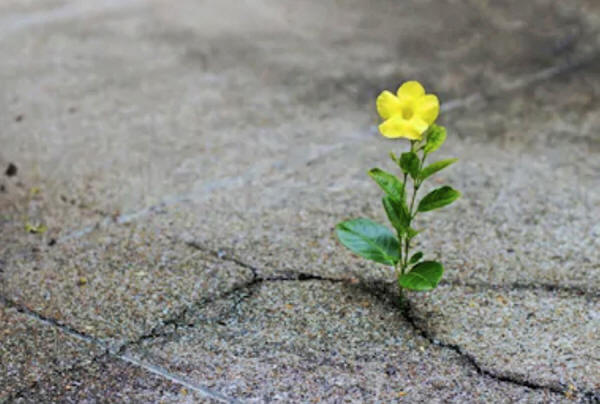|
by Michael Krieger May 2019 from LibertyBlitzkrieg Website
Part 1 May 21, 2019
and absolute power corrupts absolutely. Great men are almost always bad men, even when they exercise influence and not authority: still more when you super-add the tendency or the certainty of corruption by authority. There is no worse heresy than that the office sanctifies the holder of it. That is the point at which the negation of Catholicism and the negation of Liberalism meet and keep high festival,
and the end
learns to justify the means.
by fighting the existing reality. To change something, build a new model
that makes the
existing model obsolete.
The old world we all grew up in no longer works for most people, yet is being relentlessly propped up by the powerful and their minions who benefit from its parasitic and destructive nature.
Despite their best efforts, a system so poisonous, decrepit and corrupt cannot and will not last.
At this stage, it's
little more than a Potemkin village fraud barely kept standing
courtesy of increasingly intense deception, manipulation and the
sheer will of those who profit handsomely from it.
Specifically, I think there are two core aspects of human existence that will be completely transformed in the years to come.
I've spent many hours
writing about the financial and monetary system, so today's piece
will focus on what appears to be coming with regard to human
political evolution.
Once you start exploring the concept you'll be immediately confronted with a plethora of terms such as,
...and recall to name just a few.
The purpose of this post isn't to dig into all of that, although it's certainly a useful exercise and I'll provide some helpful links at the end.
The purpose of this post
is to distinguish direct democracy from the most common form of
democratic government functioning on earth today, representative
democracy.
https://twitter.com/LibertyBlitz/status/1130892097802817536
I like to keep things simple, and simply put, the core purpose of direct democracy is to ensure that voters are more active and empowered in political life than in a representative democracy where you vote for people who you then entrust to vote in your interests.
As we can all see by now,
this isn't working.
In such a system, voters relinquish their rights to have a direct say on the most significant issues of the day, which opens up tremendous opportunities for corruption.
All special interests have to do is compromise a few hundred (or less) representatives, which we can all see is quite commonplace and trivial to do. I've long believed that the biggest threat to human liberty and progress is centralized concentrations of power, whether that power manifests in government or corporate form.
Representative democracy is the most common form of democracy practiced in the world today, and it serves to concentrate power in professional politicians who are then compromised.
Not a very good system...
I first recognized the power of direct democracy and change via referendum back in 2012 when the people of the state of Colorado (where I live), voted to legalize and regulate cannabis.
To this day, it's the only vote I've ever participated in that actually made a difference and empowered me as a voter and citizen.
Had Colorado and Washington not put this decision to the people of their states back in 2012, it's unlikely that any progress would have been made on this important issue anywhere in the U.S.
There's no way Congress would've done anything on the subject, yet many other states have since taken similar action following the success of legalization in the states willing to serve as guinea pigs.
Direct democracy
functions best from the bottom up, at a grass roots local level,
which is something I'll discuss more in Part 2. It should first and
foremost empower people and communities, and if it doesn't do that,
then it's not progress.
The key unifying principle is the public should have more direct input in what sort of legislation is passed, but there's more to it than that.
Recalls of politicians
can be another element, as is the right to veto legislation passed
by representative bodies, which are unlikely to disappear, but
should be neutered and held far more accountable in real-time.
For example, under liquid democracy voters can delegate their votes to trusted representatives on an issue-by-issue basis, while preserving their ability to participate directly on other issues.
Direct democracy is
definitely not a one-size fits all concept, and vast experimentation
is key to figuring out what works best.
Local regions can then decide to create larger alliances or loose political unions to face certain challenges that require such structures, but there should always be very simple ways to dissolve such arrangements when they no longer work for the communities that entered into them.
The fact Catalonia has no simple legal manner to remove itself from Spain highlights the problem of creating rigid political structures.
Finally, here are a few resources on the topic of direct democracy you may find interesting:
May 29, 2019
War is not a foregone conclusion or a national necessity. Each successive occupant of the White House only needs you to believe that in order to centralize the power of an increasingly imperial presidency, stifle dissent, and chip away
at what remains
of civil liberties. retired US Army officer, The Pence Prophecy - VP Predicts Perpetual War at the West Point Graduation
Since this response tends
to center around several concerns, today's post will dig into them
and explain how such pitfalls can be structurally addressed.
Take the U.S. for example, where approximately 80% of the population lives in urban areas and only 20% in rural. If we moved to a system where direct popular vote played a meaningful role in deciding the majority of issues, rural populations would lose out every single time.
It would end up being an
oppressive system for people who live in less populated areas and
would tear up the U.S. even faster than is happening now.
America is a great
example of a good idea gone completely off the tracks.
But it's even worse than that.
Power hasn't merely been
concentrated in D.C., but it's also become increasing concentrated
within the capital itself in the hands of a reckless imperial
presidency.
Congress is supposed to declare war, yet the U.S. military is involved in conflicts all over the planet, including,
...without any such
declaration.
We've somehow gone from Congress must declare war, to the White House will update Congress every six months on how all the undeclared wars are going.
This is madness...
I don't think it's a
coincidence that the places currently using these tools most
successfully, Switzerland and Liechtenstein, focus on localism.
While the urban/rural
divide I mentioned earlier is one important factor, so are other
cultural distinctions.
Fracking, and oil and gas drilling in general, is a very contentious issue, and what often happens is cities will try to ban or regulate drilling in their communities only to be overruled by politicians in the state capital.
Who should decide whether
drilling happens, the people actually living near wells, or
politicians in the statehouse?
As this past weekend's EU elections demonstrated, humans everywhere are increasingly frustrated with the political status quo and feel utterly helpless in the face of corrupt and centralized bureaucracies.
Similar to how many people in Loveland, Colorado feel alienated and disempowered when confronted with oil and gas interests and a state government that doesn't care, billions of people across the planet are experiencing a similar level of disenfranchisement and revulsion with the political establishment.
Increased local decision
making combined with more citizen power via tools of direct
democracy, as opposed to professional politicians, could be a key to
improving outcomes, quality of life and a sense of self-government
so sorely lacking in today's world.
One of the great gifts provided to the American people by the founding fathers is the Bill of the Rights of the Constitution. These civil liberties protections, which include freedom of speech and the press, are the highest law of the land.
While they're subject to interpretation by the courts, they cannot be legislated away by Congress or suspended by the president (at least in theory).
In a future system more defined by direct democracy, similar protections should be institutionalized.
A conscious and healthy political system should define up front certain basic civil liberties considered untouchable, while empowering the community to experiment widely beyond that.
https://twitter.com/LibertyBlitz/status/1132014979421315072
This is used as an
argument against putting more power in the hands of average
citizens, which is considered by some to be dangerous and
irresponsible.
Nevertheless, this isn't a good argument against the need for more direct democracy.
Remember, the primary
purpose of injecting more direct democracy into political systems
isn't to get rid of a separation of powers, but to disrupt the
archaic and broken practice of representative democracy, i.e., the
goal is to disempower 'professional' politicians by
giving more direct say to the public in matters that are
currently handled by elected representatives.
All you have to do is manipulate people every couple of years to vote for some sleazy, self-interested politician, and once the vote is over, special interests simply need to target that person and compromise them.
In most cases, this is
easily accomplished. In contrast, manipulation must be more
regularly engaged under a direct democracy where citizens are more
actively involved beyond just voting for some puppet every few
years.
Compromising a few hundred representatives is trivial compared to manipulating and compromising millions.
Moreover, it becomes even harder to control when hundreds or even thousands of cities/regions/communities are making most decisions for themselves via direct democracy. In that sort of world, an oligarch or lobbyist who wishes to rig things in their favor must deal not just with myriad distinct largely autonomous political entities, but also with the empowered citizens residing in those areas.
The more political
entities an oligarch or corporation has to interact with, the harder
and costlier it becomes to capture and control large swaths of
society.
Sound familiar...?
It's the exact same argument shoved down our throats during the 2016 campaign in order to guilt people into voting for Hillary Clinton.
Likewise, it'll be the
exact same argument used in 2020 to guilt people into voting for
Joe Biden if Democratic Party donors somehow succeed in getting
that clown nominated.
This is a global problem,
and it's why the time has come to alter governance in order to
provide the people with more direct power.
All governments are more or less controlled by a very small group of powerful interests who use carefully selected politicians to do their bidding.
In the more ostensibly free societies, we've centralized legislative power in a few hundred easily corruptible people, but it's become clear this no longer works.
Such a system merely
serves to separate the voter from the professional politician as
soon as an election is over.
As things continue to fracture and break down more dramatically in the years ahead, I believe the idea of direct democracy will catch on like wildfire, and it'd benefit all of us to start thinking about what this means and how best to go about it.
|



